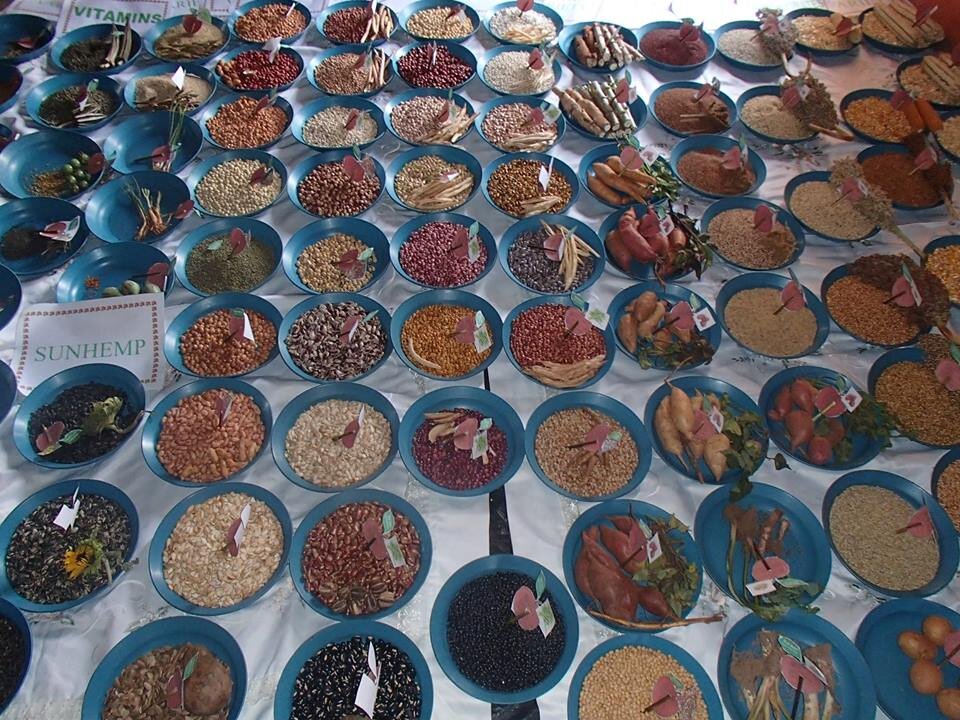EDUCATION
CS Fund educates and organizes other funders to invest in critical, under-resourced fields and organizations.

Emerging Technologies
Falling for False Climate Solutions – Real Risks & Opportunities Thwarted
EGA Fall Retreat, October 2021
As our collective work to address the climate crisis ramps up, the deluge of ‘solutions’ threatens to overrun even the most climate-savvy funder. Proposals that appear at first glance to be feasible turn out to be unjust, unsustainable, and uneconomic and are a central plank of the myth of net zero emissions. During this session, we’ll highlight a few of the ‘trojan horse’ proposals that are threatening communities and reinforcing status quo incremental change, including carbon capture and storage; biomass energy; and “clean-burning” hydrogen. We’ll highlight true solutions that center justice and sustainability, led by communities on the frontlines
Speakers:
Colette Pichon Battle, Gulf Coast Center for Law and Policy
Flozell Daniels, Community Engagement Strategist Foundation for Louisana
Carroll Muffett, Center for International Environmental Law
Hosted by Park Foundation and CS Fund

Food Sovereignty
Zimbabwe Small Holder Organic Farmers' Forum
Food Sovereignty for All! Supporting Struggles that Transform Food Systems
EDGE Funders Conference, October 2021
The concept of food sovereignty was developed by the global peasant movement La Via Campesina as a powerful response to destructive neoliberal policies. Since its launch on the global stage at the 1996 World Food Summit, food sovereignty has grown in visibility, influence and strength. As the world gathers to celebrate the 25th anniversary of food sovereignty, it is important to acknowledge the movement’s victories and ongoing struggles.
Join this interactive session to hear directly from Via Campesina member organizations on opportunities to support local and national initiatives to democratize control over land and other natural resources, deepen the agroecological transition of farms and food systems, defend local seeds, resist GMOs, and engage with governments to effect systems-wide change. The pandemic has highlighted the need to strengthen and support local food systems even more so, as disruptions in global supply chains have threatened food access for millions.
Organized by: La Via Campesina (LVC)
Hosted by: American Jewish World Service, Grassroots International, Thousand Currents, Why Hunger
Cosponsored by: CLIMA Fund, CS Fund
For: Funders who want to understand and support the Local-Global Food Sovereignty Movement
Agroecology: policy pathways to a pesticide-free future
Webinar, July 2021
In this webinar, participants will listen to policymakers from Africa, Asia, Latin America, and Europe share their experiences in developing and implementing public policies and initiatives that support transitions from pesticide dependence to agroecology.
This proven approach to farming — grounded in principles of equity, collectivity, and food sovereignty — has enabled farmers around the world to replace dependence on highly hazardous pesticides with healthy, resilient food and farming systems.
The conversation with policymakers will highlight the wide diversity of policy approaches supporting agroecological transitions that are underway today, from local to national to region-wide programs in Argentina, Mexico, Spain, India, Benin, and West Africa.
Speakers:
Lidia García-García, Member of Coordination Team of the Right to Food Observatory, Valencia Food Policy Council & Center for Social Innovation (Spain)
Marta Isabel Ferreira, Minister of Family Agriculture, Province of Misiones (Argentina)
Vijay Kumar Thallam, Advisor to Government of Andhra Pradesh for Agriculture & Cooperation (India)
Cecilia Elizondo, Academic Staff of Agroecology Group, El Colegio de La Frontera Sur & former Chief of Cabinet of Ministry of Environment and Natural Resources (Mexico)
Simplice Davo Vodouhe, Coordinator of the Benin Organization for the Promotion of Organic Agriculture (OBEPAB) and Advisor to the Benin government's organic action plan (Benin)
Ernest Aubee, Head of Agriculture Division, Economic Community of West African States (ECOWAS) Commission (West Africa)
Ana María Suárez Franco, Permanent Representative of FIAN in Geneva/Accountability Coordinator.

Rights and Governance
This is What Democracy Looks Like: Protecting Social Movements in the Streets
Webinar, July 2020
We are bearing witness to the largest protest movement in US history. Across the country we are seeing people rise up and take to the streets to demand justice for Black lives and an end to police brutality. Indigenous Water Protectors and climate protesters are also using civil disobedience to shut down dirty energy projects. No matter the issue, non-violent protest has always been fundamental to creating social change and is vital to the health of our democracy.
Attempts to stifle dissent are not new, but right now protesters nationwide are dealing with unprecedented, multi-pronged assaults on their right to speak out and make change. This includes militarized police forces violently dispersing and arresting protesters, a proliferation of anti-protest bills that impose severe criminal penalties and fines against protesters, and aggressive prosecutions and Strategic Lawsuits Against Public Participation (SLAPP suits) designed to intimidate and tie protesters up in court.
At the same time, national attention directed toward the protests and an increasingly supportive view of protesters have created a unique opportunity for positive reform that would have been unimaginable six months ago. Whether fighting for Black lives, Indigenous sovereignty, immigrants’ rights, climate change, clean water, food systems, or education - peaceful protest is vital to achieving our goals and attempts to stifle protest will impact us all movements for justice.
Please join us to hear from leaders on the front lines about the integral role protests play in movements for social change and the challenges they are confronting nationwide, the path forward for positive reform, and the ways that funders can support networks and campaigns to defend and champion our right to protest.
Speakers:
- Maurice Mitchell, Working Families Organization/Working Families Party, Movement for Black Lives
- Krystal Two Bulls, Oglala Lakota/Northern Cheyenne organizer, Voices of the Sacred, NDN Collective
- Anne Rolfes, Louisiana Bucket Brigade
- Mara Verheyden-Hilliard, Partnership for Civil Justice Fund
Protecting the Right to Protest
Funder Briefing, Oakland CA, September 2019
Black lives. Indigenous sovereignty. Immigrants’ rights. International human rights. Climate change. Clean water. Food systems. Education.
No matter the issue, peaceful protest is fundamental to creating social change. As money floods our political process, voting rights are rolled back, and courts are captured, the right of the public to assemble, oppose governmental and corporate actions, and demand change and accountability is ever more critical. However, a multi-pronged assault on the right to peaceful protest is proliferating nationwide and jeopardizing all that we are fighting for.
- Protesters are being subjected to intrusive surveillance, violent and militarized policing, and overzealous prosecution designed to suppress their activism.
- Anti-protest laws creating severe criminal penalties and fines have been enacted in 12 states (over 100 bills have been considered in 35 states) in response to actions led by Indigenous Water Protectors, Black Lives Matter, and students opposing white supremacy. Some bills explicitly target foundations that support these groups.
- Anti-boycott laws targeting the movement for Palestinian rights have been adopted in 27 states, and are being considered by more than a dozen other states and the federal government – a model for repressing boycotts of all kinds.
- Gag laws passed in 12 states seek to chill undercover activists and whistleblowers. Originally aimed at factory farms, some laws have expanded to any private business, including hospitals, elder care and veteran care facilities, and schools.
- At the federal level, proposed National Park Service regulations would all but eliminate protest in our nation’s capital. A new presidential executive order aimed at college campuses would chill speech by students of color and anti-fascists.
- Corporations are bringing SLAPP suits (Strategic Lawsuits Against Public Participation) against activists and NGOs, aimed at tying groups up in costly litigation.
Join us to hear from leaders on the front lines in conversation about the challenges they are confronting nationwide, how they are building alliances to fight back and win, and how funders are supporting new networks and campaigns to defend and champion our right to protest.
Speakers:
- Kylah Johnston, The People’s Lobby
- Liz Jackson, Palestine Legal
- Mara Verheyden-Hilliard, Partnership for Civil Justice Fund
- Nick Tilsen, NDN Collective
- Steven Renderos, MediaJustice
Protecting Environment’s Voice: Resisting Assaults on Protest Rights
EGA Fall Retreat, Napa CA, September 2019
A multi-pronged assault on Indigenous Water Protectors, oil pipeline protesters, and climate justice activists is jeopardizing all that we are fighting for. The “Standing Rock” model of policing protests is proliferating nationwide. Draconian legislation designed to criminalize protest has passed in 14 states, with 100 more bills introduced. Regulations have been proposed to limit protest on the most iconic lands in our nation’s capital. Corporate-driven Strategic Lawsuits Against Public Participation are being brought against environmental organizations and activists. Hear from leaders on the front lines about these challenges, and how funders are supporting new networks to defend these fundamental rights.
Speakers:
- Katie Redford, Director, EarthRights
- Nick Tilsen, President & CEO, NDN Collective
- Mara Verheyden-Hilliard, Executive Director, Partnership for Civil Justice Fund
